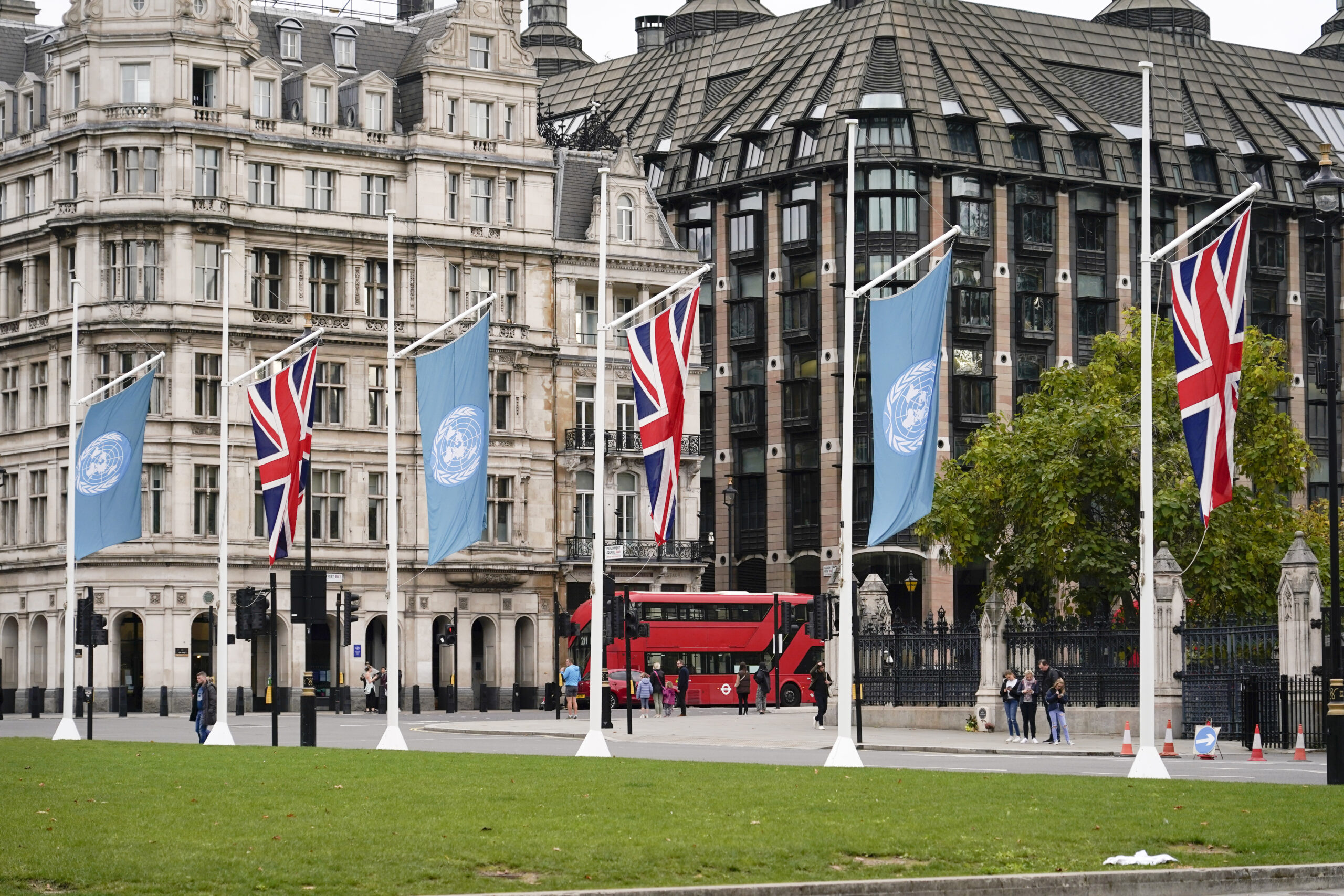An energy crisis, geopolitical tensions, a pandemic and overcrowded hotels could pose challenges at the Glasgow Climate Summit.
In connection with floods, heat waves and forest fires this summer visited many countries, there was a great desire to intensify efforts to combat climate change.
US Climate Envoy John Kerry called the Glasgow Summit "Last best hope" to avoid the worst consequences of climate change.
However, the countries at the top face serious dilemmas, challenges and conflicting interests. The British government - which is hosting the meeting along with Italy - has apparently begun to suppress expectations.
"I am very worried because it may fail," Prime Minister Boris Johnson said earlier this week.
In a meeting with British students, Johnson admitted that it was difficult to make the necessary progress in climate negotiations.
- It's very, very difficult. But I think it is possible - he added.
UN Secretary General António Guterres also expressed concern.
- I hope we can avoid defeat in Glasgow yet. But time is short and things are getting more difficult, he said recently.
One of the goals of British hosts is to increase support for the goal of limiting global warming to 1,5 degrees.
But it will be extremely difficult. Instead, it seems like the world is heading towards 2,7 degrees, if all countries meet their emissions targets so far.
"Obviously, this is a one-way ticket to a disaster," Guterres said.
More than a hundred is expected heads of state and government will take part in the first phase of the COP26 climate summit early next week.
Among them are US President Joe Biden, French President Emmanuel Macron, Indian Prime Minister Narendra Modi and Norwegian Prime Minister Jonas Gahr Støre (employees). Britain poses with Boris Johnson and several members of the British Royal Family.
A UN summit is held at the end of the year with a series of dramatic events that have raised awareness of global warming. The United States, Canada, Germany, Greece, China and several other countries have been hit by extreme weather this summer, which has been linked to climate change.
The UN Climate Panel has presented a bleak new report, which António Guterres described as "the red code for humanity".
Burns more coal
But while climate change has become more apparent to people in Europe and North America, an energy crisis has hit some parts of the world this fall.
The price of fossil energy, oil, gas as well coal soared up. If the climate is to stabilize, the use of coal and oil must be reduced quickly, but the demand has increased instead.
The energy crisis has several different causes. But one factor in Europe was the lack of wind hitting wind power designed to curb climate emissions.
The situation may make it difficult to agree on a Glasgow summit, the news agency writes Bloomberg. Countries may be less likely to promise cuts in coal energy.
Climate negotiations are also affecting relations between China and the United States, the two largest emitters in the world. This relationship has been full of conflict since Donald Trump went to war with China.
Strict infection control
Despite dramatic UN climate warnings, Chinese President Xi Jinping is likely to reject the Glasgow summit. Russian President Vladimir Putin will also not go to Scotland.
The coronavirus pandemic and the lack of hotel rooms are creating practical problems for some of the people who will physically attend the meeting. Delegates from poor countries are subject to severe restrictions and skyrocketing hotel prices.
Although the climate summit stayed defined as the most important since the Paris summit in 2015, these are not the biggest decisions planned for this round of negotiations.
Tug of war for funding from rich countries for climate resources in poor countries will continue. Several countries have pledged to increase their contributions - but probably not enough to hit the $ 100 billion annually target.
In addition, a new attempt will be made to agree on quota trading rules in line with the Paris Agreement. Norway will play a leading role in these talks.
- A very important year
British hosts hope to see progress in many different areas that are part of the negotiation process, according to a British source interviewed by NTB.
Among other things, there is hope that more countries will commit to the so-called zero net emissions by 2050.
Research Director Steffen Kallbekken at the Cicero Center for Climate Research says 2021 is a very important year for international climate policy. But this is not because there are many important decisions planned in Glasgow.
Instead, it refers to the voluntary emission targets that the countries of the world have included in the Paris Agreement. Targets will be tightened regularly, as many countries have done over the past year.
Overall, the level of ambition has been higher this way - but not enough to stop the world from pushing for 2,7 degrees of warming.
Source: NTB
Photo: (AP Photo / Alberto Pezzali)




